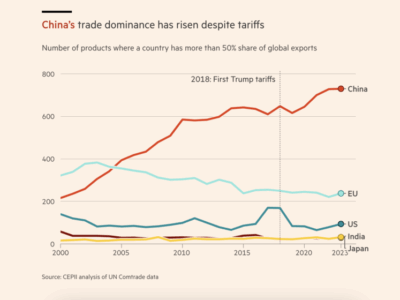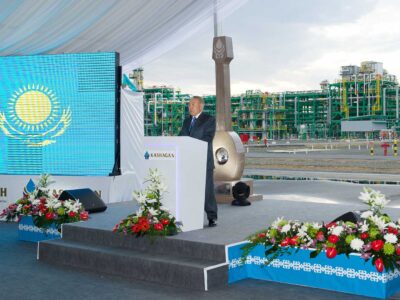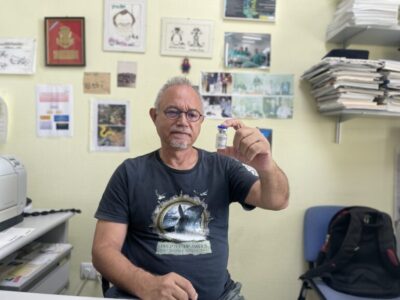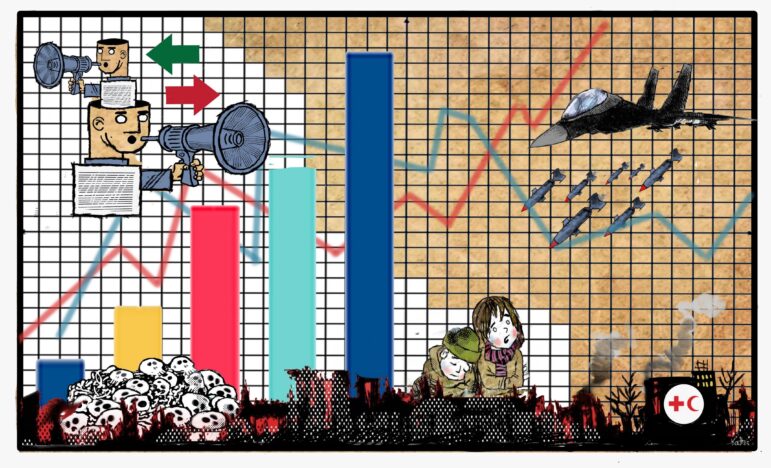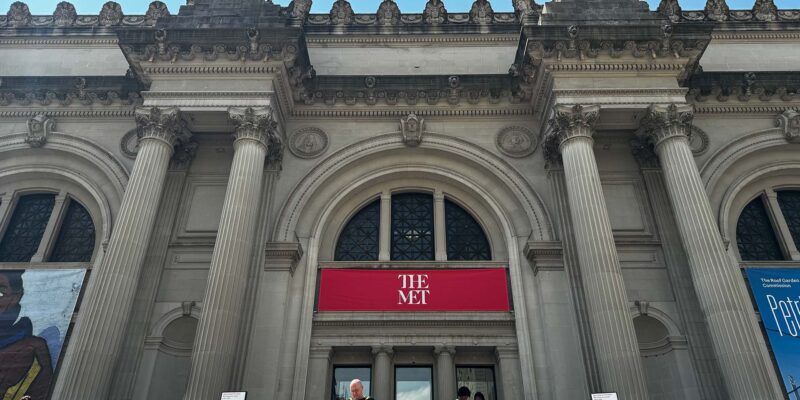
New York’s Metropolitan Museum of Art expelled an attorney for the Cambodian government from a Tuesday meeting between museum officials and the representatives of Cambodia’s culture ministry, heightening tensions in a yearslong campaign to press the museum to return Khmer treasures to their home country.
The attorney, Brad Gordon, has been one of the most prominent faces of Cambodia’s national effort to trace lost ancient artifacts looted during years of turbulent civil war. Gordon has worked for the Cambodian government in that capacity for a decade. Many of the pieces were trafficked to the United States and other Western nations and sold to ultrawealthy art patrons and some of the world’s largest museums, including the Met.
Officials from Cambodia’s Ministry of Culture and Fine Arts visited the Met on Tuesday as part of a U.S. State Department program that provides tours of U.S. institutions for foreigners. While the Cambodian delegations’ itinerary included stops at multiple American museums, their visit to the Met held special significance — and sensitivity — because of Cambodia’s extensive push to reclaim cultural objects from the museum.
In recent years, the museum’s Cambodian pieces have been a focal point of increasing scrutiny on the Met’s collection by journalists and law enforcement. In 2021, the International Consortium of Investigative Journalists and its partners began asking the Met questions about more than a dozen pieces in its collection that had passed through the hands of accused antiquities trafficker Douglas Latchford or his associates. This followed a long run of attention from online sleuths, including the Chasing Aphrodite blog. Latchford was indicted in 2019 by federal prosecutors in New York and accused of helping orchestrate the large-scale looting of Cambodian cultural heritage decades ago. Latchford died in 2020 before the case against him proceeded.
In March 2023, ICIJ and media partners found at least 1,109 pieces in the Met’s collection that were previously owned by individuals who had been either indicted or convicted of antiquities crimes. The museum subsequently hired a team of researchers to vet its collection, and in December it announced it would repatriate more than a dozen works to Cambodia. But that didn’t end the saga. The Cambodian government claims that dozens more of its stolen treasures remain in the Met’s collection, and it wants them back.
Gordon said that when he arrived at the Met on Tuesday, he was led to a conference room where the Cambodian delegation would meet with Met officials. Immediately upon arriving, he said, two Met attorneys approached him and asked to speak with him privately outside the conference room. He said he was then asked to gather his belongings. From there, the officials told Gordon he was barred from the meeting before a guard escorted him out of the museum, according to his account.
A Met spokesperson said that Gordon had not been invited to the meeting and was “asked politely to leave.” The spokesperson said that afterward, “The Met continued amicable discussions with their Cambodian colleagues, including a gallery tour and agreement to meet further to expand cooperation.”
Among the planned attendees at the meeting was Lucian Simmons, the Met’s new head of provenance research. Last year the museum hired Simmons to lead a team of researchers to scour and identify potentially problematic pieces in the museum’s collection. Simmons’ hiring was portrayed in the press as a sign of the museum bolstering its approach toward addressing concerns over trafficked art in its sprawling collection.
Gordon said that the exact agenda of yesterday’s meeting was unclear but related to conservation issues. He told ICIJ that he had been specifically asked to join the meeting by H.E. Hab Touch, a senior official in the Cambodian culture ministry, who is leading the delegation.
“As you know, we are in the midst of negotiations for the return of additional stolen artefacts from the Met,” Gordon said in an email to several State Department officials that he shared with ICIJ. He added that because the situation with the Met was delicate, the Cambodian delegation had been “very clear that they wanted me as their counsel to be present” in the meeting.
Gordon said he pleaded with the Met to let him stay in the meeting, with a member of the delegation even calling Cambodia’s minister of culture to affirm the importance of his attendance. Gordon added that the Met officials offered no explanation for his expulsion apart from saying it was a State Department meeting.
“After the MET rejected the Minister’s request for me to attend, I agreed to leave,” Gordon told the State Department. “I have never felt so humiliated in my life.”

